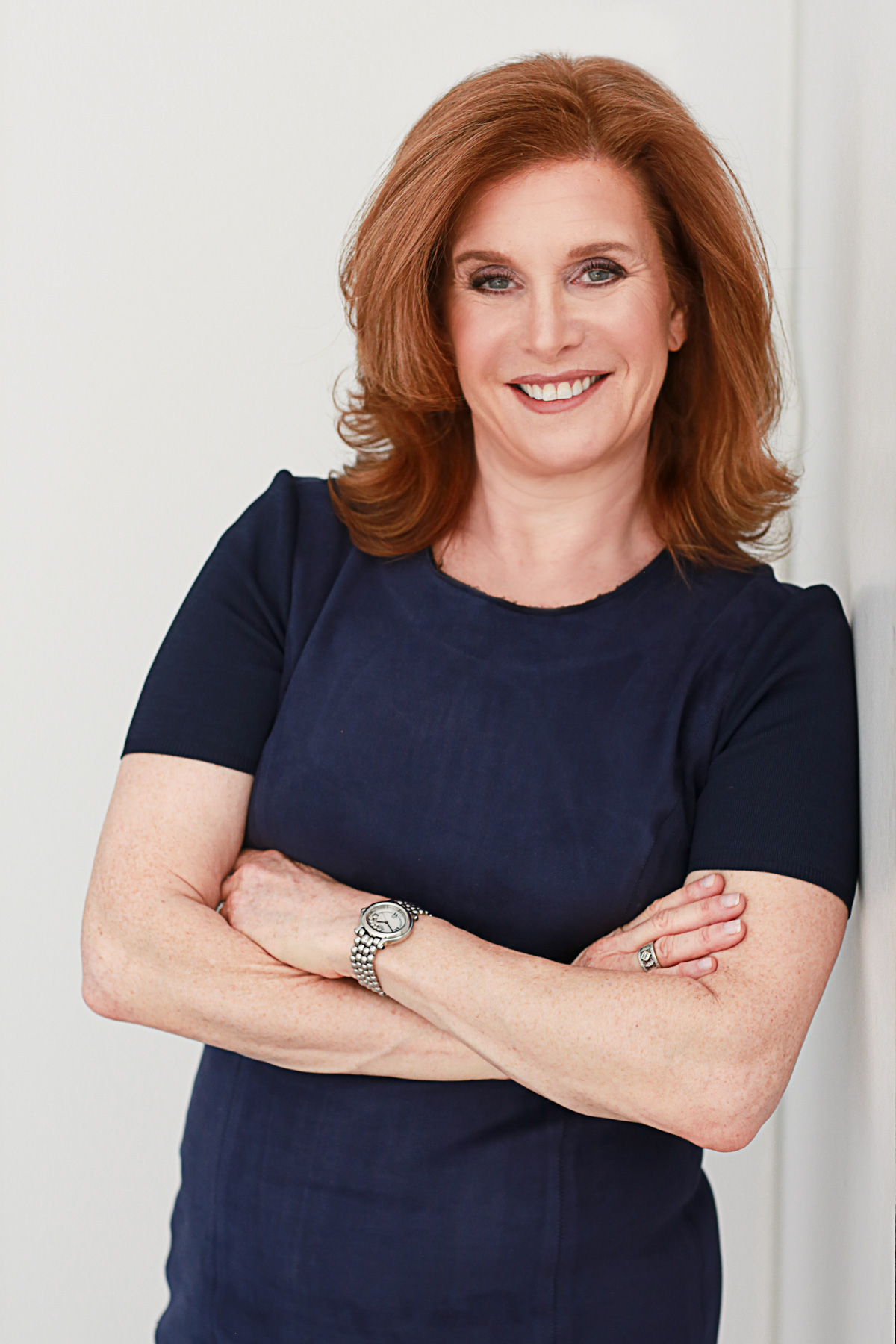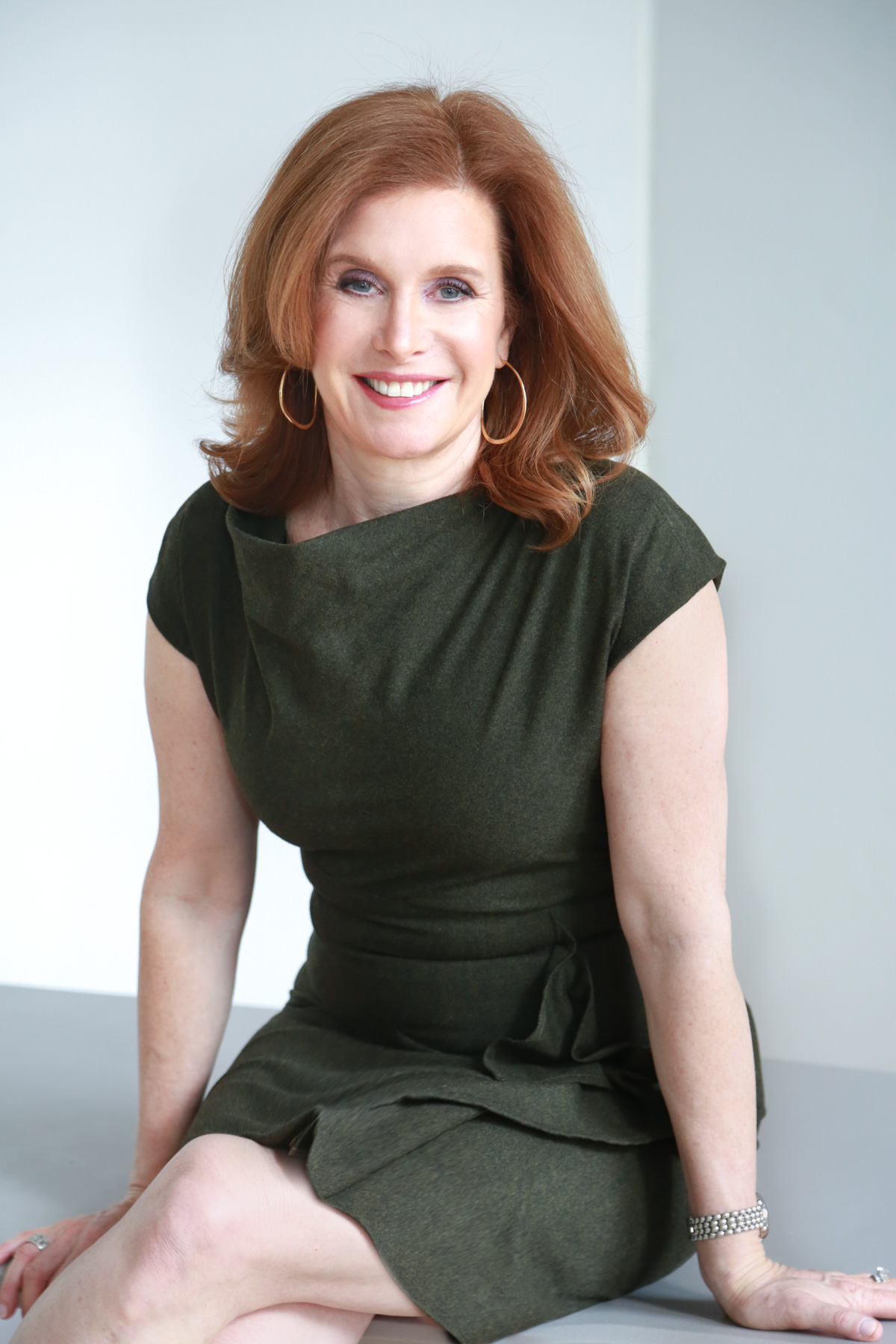
Rachel Braun Scherl is a well-known entrepreneur, CEO, business-builder and thought leader in women’s sexual health and wellness. A pioneer in this arena, she has consulted and worked with many of the biggest pharma and women’s health companies in the world, as well as served as the President and Co-Founder of Semprae, a company built by women to improve arousal, desire and satisfaction for women.
Braun Scherl is also the author of a book, ORGASMIC LEADERSHIP: Profiting from the Coming Surge in Women’s Sexual Health and Wellness, based on her own business experiences as well as that of dozens of other entrepreneurs in the female sexual and reproductive health space. In addition to her work advising companies, Braun Scherl is a frequent keynote speaker and panelist at leading conferences, companies and universities.
The women’s sexual health and wellness space has faced some inequities in the ability to get products for women out to women. The arena is still full of inequities, where “women’s products” are thought to be too racy or too uncomfortable to be widely-advertised to those who would be helped by these products.
Read on to hear how Braun Scherl became a Vagipreneur and her journey to becoming a major force in business and women’s sexual health and wellness.
Why did you choose the field(s) you have pursued, (health and wellness, pharma)? What made you pursue issues within the “vagina economy”?
I would describe myself as an “accidental” Vagipreneur®. By 2008, my business partner, Mary Jaensch, and I had built a very successful business in strategy consulting focused on revenue growth – catering to Fortune 500 companies in pharmaceuticals, consumer products, health and beauty. Our work focused on identifying new insights, opportunities, targets, products, line extensions and geographies to name a few for companies and businesses that dealt with women’s issues from the tops of their heads to the tips of their toes. In February of that year, a venture capitalist friend (who had never before shared a business plan with us), passed along an opportunity to work with a company in women’s sexual health, with a topical, safe product that improved arousal, desire and satisfaction for women of all ages.
When we met with the company, instead of looking for strategists and business builders, they were looking for significant financial investment. While I had run and consulted for businesses, but I never raised money. So we left the meeting but couldn’t get the company out of our minds. The opportunity to be in this space seemed like the perfect storm. In marketing, one is often looking for emotionally engaging categories. No big surprise – sex and intimacy are about as emotionally engaging as it gets. Add to that – 43% of women have sexual concerns and difficulties at some point in their lives. In addition, no other product on the market could make those claims. Women didn’t seem to have a vocabulary for arousal and satisfaction. It was one of the few categories I ever worked in that women didn’t talk about with their best friends, sisters, cousins, partners and yes, even their doctors.
So, when the key assets of the company became available through an amazing series of events that summer, Mary and I sprang into action and raised money. And before it even had that name, I was a hardworking member of the “vagina economy”.
Who was your mentor and who inspired you to accomplish what you have accomplished? How did you face your biggest fears?
My dad’s name has always been the answer to every essay or interview where I was asked, “Who had the biggest influence on your life?” As we used to say in my family, I had on my fastest running shoes the day they gave out the fathers. I really hit the jackpot – with a father, mentor, and role model all in one person. My father’s voice is the voice that I hear in my head – the one that I have always heard. It is the voice that has always tried to guide me how to live, how to love, how to care, how to be kind, how to do good, how to build relationships, how to make people laugh. His words and example are the what I have always looked to help me figure out how to navigate life in its many complexities– as a parent, a spouse, a sibling, a friend, a businessperson, a confidante, a colleague, cheerleader, and a moral and ethical human being.
He took the best scenes from every great sports movie and comedy and turned them into the ultimate reel of encouragement. He taught me to have “the eye of the tiger”, “to go the distance”, to not pick the “wrong day to give up sniffing glue”, and how to find the life applicability of literally any scene from Animal House.
But by far, the advice that I heard most often and try to live by is the one from Rollerball, the 1976 movie about a futuristic version of roller derby, where grown men on skates, with spiked gloves and motorcycles literally play to their deaths – their actual deaths. And right before every match, the referee announced the rules, “No Time Outs, No Substitutions”. The players literally played to the death. It might not sound motivating, but my dad’s translation to us that meant, there is no quitting – period. There is no one on the bench to take your place. People are counting on you. You have to be 100% in the game, you have to play hard and even more importantly, you have to play fair. And that is what I have always tried to do and instill in my children.
Apart from your book, what is your heartfelt advice to entrepreneurs, especially female entrepreneurs?
There are so many things I have learned along the way – through on the job training, from generous co-workers, colleagues, friends, and thought leaders, but a few always rise to the top.
- In order to be successful in my mind, you must know how to sell. Whether it is an idea, a business, a solution, an approach, so much relies on one’s ability to convince others to buy, invest, collaborate, participate in what you are trying to accomplish. You need to be able to compel others with the strength and appeal of your ideas, your story or approach.
- Know how to negotiate. This concept covers so many different situations – fundraising, partnerships, your salary, someone else’s salary, equity stakes. The answer is always no if you don’t ask. So come armed with the facts, the data, the key points whenever you enter a negotiation. At least, when a negotiation works out – when both parties have come away with something of value, I literally feel a rush of endorphins (the same feeling you get after a strenuous workout). In my mind, negotiating is never about decimating the other side, but finding solutions that are mutually beneficial, the proverbial “win win”.
- Be prepared that whatever business you are trying to build will likely take more time, money, resources of every kind than you anticipate. Unexpected challenges will block your path. You will need a support system – find one, create one, access one and use it. Make sure to take care of yourself physically – whatever that means in your personal case. And never, ever, lose your sense of humor. Many were the days when finding a way to laugh in the face of enormous challenges not only kept me from becoming totally discouraged, but also gave me the lift I needed to keep moving forward.
What are problems female entrepreneurs will most likely have to face, and how did you deal with them? How do you keep going sometimes even in the face of adversity?
I really like to pragmatic, not pessimistic when it comes to talking to female entrepreneurs. To that end, I believe that knowing what you might face and being prepared for it will be one of the keys to success. We are all too familiar with the stats about the percentage of investment dollars that go to women or the number of female decision makers. And I think much of that is exacerbated when it comes to anything female health related. How do you fight the uncomfortable silence; the discomfort with the conversation, the lack of appropriate language and lack of education in schools to describe female sexuality in all its complex glory.
Eleven years ago, when I started speaking publicly about the disparity between access to advertising for men and women’s sexual products, people were aghast. They couldn’t believe that we had approached 100 media outlets – from network to cable, radio and websites, only to be rejected for over 95% of those. Obviously, challenges remain, but I am optimistic. I truly believe that a rising tide raises all boats. Hundreds of businesses in the space have been created in the past several years and many have raised significant funds. Many sources of financing, beyond traditional venture capital, have seen the value and the opportunity in these businesses.

We understand that there is less regulation of some products that women use regularly, making them (sometimes) less than safe. Is that accurate? And why does the pink tax exist?
There is so much to unpack here. Regarding safety, we are trained to expect the food we put in our bodies to have a list of ingredients, like every cereal box you have ever picked up. But the FDA does not require manufacturers of tampons and condoms to disclose ingredients. And in the gap left by that, many new leaders and entrepreneurs in the space have been incredibly vocal about making sure that the ingredients in their products are very clear as well as safe.
The pink tax refers to the reality that the same products made for men and women are not priced the same – with women’s products costing more in the same category. According to the NYC Department of Consumer Affairs, the price discrepancy tends to be a cost of 7% more for products marketed to women vs. those in the same category marketed to men. And the discrepancy for personal products for women vs. men is a whopping 13% for basics including shampoo, razors, deodorant and body wash.
And then there is the tampon tax. In most states, menstrual health/feminine hygiene products are classified as luxury items vs. necessary items. Did anyone who ever used a tampon describe it as a luxurious experience? Of the states that don’t charge sales tax on these products, 5 have no sales tax on personal items, 5 eliminated the tax, but only a handful have categorized these products as “necessary, tax-exempt” items. With that said, substantial progress is being made to reduce that number with many states others introducing legislation to repeal it. Organizations and movements have risen up to accelerate the progress, like #axthepinktax and #taxfreeperiod.
What do you hope to accomplish, both personally and professionally in the next five years?
In 5 years, I still want to be part of the ongoing movement to make it easier to fund and grow businesses in any aspect of female sexual and reproductive health. In 5 years, I want conversations around periods, sex, desire, pain, assault and consent to be frequent, informed and constructive. I want to continue to have the opportunity to be inspired by and work with the amazing vagipreneurs in this space, people changing the world – one vagina at a time.
For more information on Rachel Braun Scherl, visit SparkSolutionsForGrowth.com.

